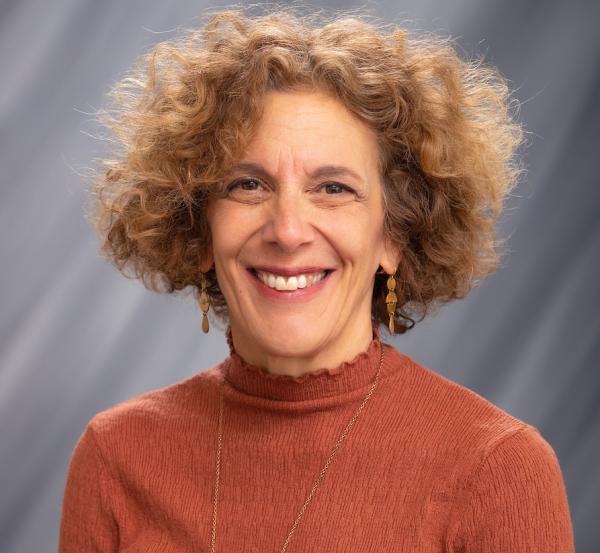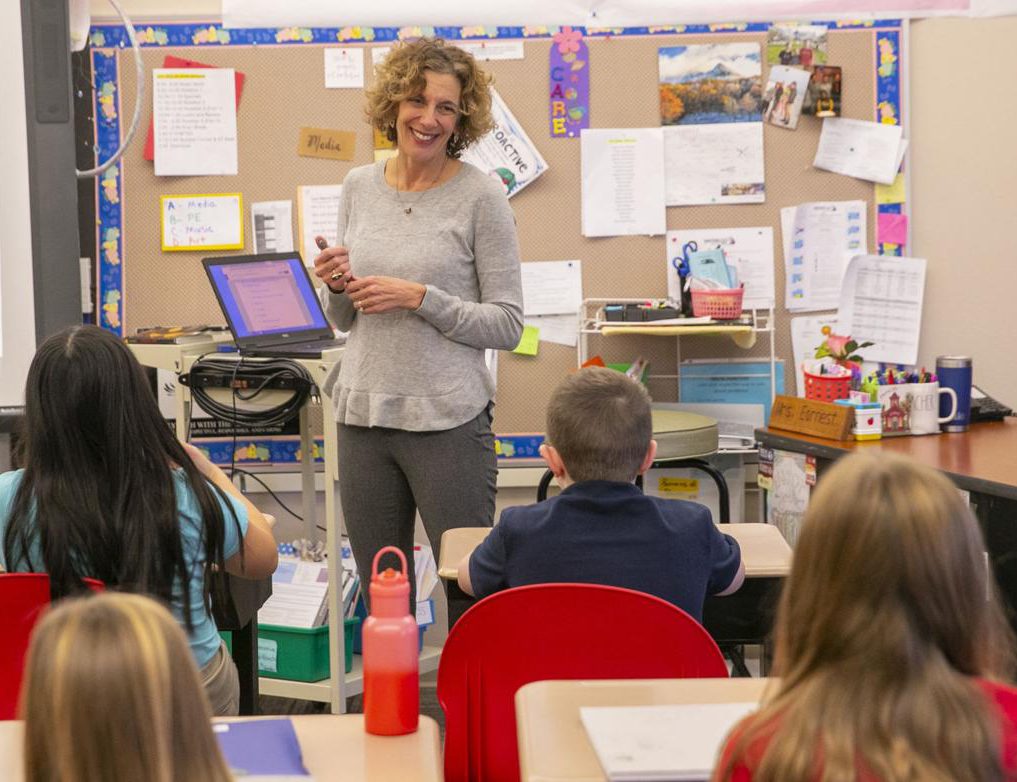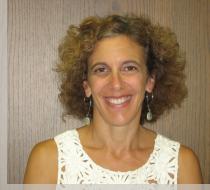Tagged: “Dr. Suzanne Freedman”
‘Peace in the Wake of Pain’ highlights the science – and healing potential – of forgiveness
The Summer 2023 edition of On Wisconsin, the University of Wisconsin’s magazine for communicating with alumni and the general public, features a full-length interview with Dr. Robert Enright, highlighting how he developed the study of forgiveness over his years in academia to contribute something of real value to people who are suffering.

Dr. Robert Enright
Dr. Enright, International Forgiveness Institute co-founder, shares how an academic crisis led to his studying of forgiveness. As he is quoted in the article, he began to wrestle with the question, “What happens to people when they’re thrown to the mat of life by others being unfair? How do they get out of that?”
The article, entitled ‘Peace in the Wake of Pain’, goes on to share how Dr. Enright and his team have helped abused youth, prison inmates, and others who have experienced deep pain and anger discover healing and peace through entering into the process of forgiveness.
The On Wisconsin feature is a wonderful opportunity for many people to hear the good news about forgiveness and its potential for healing, peace, and restoration for individuals, families, and communities. Please share generously!
“Over the past 35 years, Enright and his colleagues have worked almost exclusively with people who have been deeply traumatized and are looking for a way out of their pain,” according to the article. “Enright says people who have suffered deeply for a long time — victims of domestic abuse, incest, and political violence, for example — are often the most likely to commit to the difficult process of forgiving the injustices done to them.”
Forgiveness Education Is Peace Education
A 10-week forgiveness education curriculum can be an important component of peace education for students according to a newly published study by Dr. Suzanne Freedman, a Professor of Educational Psychology at the University of Northern Iowa.

Dr. Suzanne Freedman, Professor, Co-chair of the College of Education Diversity, Equity & Inclusion Committee, University of Northern Iowa.
Dr. Freedman, a long-time research associate of International Forgiveness Institute co-founder Dr. Robert Enright, conducted the project with three classes of fifth graders. The resulting study was published in the April issue of Peace and Conflict: Journal of Peace Psychology, an American Psychology Association (APA) publication.
The forgiveness education curriculum used for the project was jointly developed by Drs. Freedman and Enright and employed the Process Model of Forgiveness developed by Dr. Enright. The project incorporated Social-Emotional Learning (SEL) approaches that taught students healthy ways to express anger and other feelings, understand the perspective of others, and practice empathy and kindness.
This article illustrates how forgiveness education can be infused into the curriculum and the importance and benefits of doing so. Readers will learn more about forgiveness as well as how promoting forgiveness as a virtue to students can reward the forgiver, the forgiven, and society at large.
Dr. Suzanne Freedman
“Results from this study illustrate that a 10-week forgiveness education curriculum can be an important component of peace education for fifth grade students,” according to the published report. “Students showed increased forgiveness toward a specific offender and increased knowledge about forgiveness after receiving the education, and students’ verbal reports illustrate that they enjoyed and benefited from this specific curriculum using children’s literature.”
Learn more:
Read the full study – “Forgiveness education as a form of peace education with fifth-grade students: A pilot study with implications for educators.”
The Value of Forgiveness – An article outlining the benefits of forgiveness and the forgiveness education work of Dr. Suzanne Freedman at the University of Northern Iowa.
It’s Okay to Not Be Okay – A guest blog by Dr. Freedman on the importance of helping teens understand the role forgiveness plays in their psychological health.
Greater Good in Education Promotes Forgiveness/Character Education – An internationally-acclaimed organization has created an entire “best practices” forgiveness component for educators based on Dr. Freedman’s 5th grade curriculum guide.
The Psychology of Interpersonal Forgiveness – In this article written for SEL in Action, a publication for educators, Dr. Freedman debunks several misconceptions about forgiveness.
Finding Hope in the Midst of Trauma
Editor’s Note: This blog post was written by Dr. Suzanne Freedman, Educational Psychology Professor at the University of Northern Iowa, and is reposted with the permission of both the author and of Darlene J. Harris, creator of the website “And He Restoreth My Soul Project” where the blog originally appeared on May 1, 2022.
I automatically connect hope to my work on the topic of interpersonal forgiveness as an approach to healing from a deep, personal and unfair hurt. In this blog post, I will discuss why I believe choosing to forgive can offer individuals who have experienced the trauma of child abuse or sexual assault hope of healing and the power to move beyond their abuse.

“Forgiveness offers a way to heal, and have hope for the future, while acknowledging what happened was wrong, unfair, and extremely hurtful,” according to Dr. Suzanne Freedman, shown here during a research project with 5th grade students.
It is normal and natural to feel angry, and hopeless as a result of childhood or sexual assault trauma and one has a right to these feelings for experiencing something no individual should have to go through. If one believes that healing is impossible and/or there is nothing that can change their current attitude, feelings, and thoughts toward their abuser, it is likely they will feel despair and quite hopeless. Forgiveness offers an option for healing that allows one to hope and have faith in a better future, while also acknowledging that the abuse they experienced was unfair, deeply hurtful and unacceptable.
“I am often asked ‘Why forgive?’ and my response is always the same, ‘What’s the alternative?’
Although forgiveness cannot undo the injury or damage caused by the injury, it allows us to move forward in our lives without the negative effects of all-consuming anger, hatred, and resentment.
It offers a way to heal and have hope for the future.”
Dr. Suzanne Freedman
Hope is believing that things will get better even if they don’t feel that way now. Hope is making the decision to forgive and committing to the process, even if one does not feel the forgiveness in their heart yet. Knowing that one is strong enough to move forward in their own healing, at their own pace increases feelings of hope for the future and leads to greater emotional and physical well-being.
Hope isn’t just nice to have, at times it is essential for survival in unbearable situations. Without hope, the will to live can diminish. One may stop caring about themselves and others, and their beliefs toward achieving a good life decrease. Hope, although scary, is directly related to a person’s belief that they can cope and move beyond the abuse or trauma they have endured.
Read the rest of Dr. Freedman’s full blog at “Finding Hope in the Midst of Trauma.”
Dr. Suzanne Freedman is a Professor in the Educational Psychology Department at the University of Northern Iowa in Cedar Falls, Iowa. Her dissertation on forgiveness with incest survivors at the University of Wisconsin-Madison was a landmark study that was published in the Journal of Consulting and Clinical Psychology. She will be a speaker at the July 19-20, 2022, International Educational Conference on Agape Love and Forgiveness in Madison, WI.
Darlene J. Harris is a sought-after speaker, author of And He Restoreth My Soul (an anthology and resource guide on sexual violence), and the developer/leader of workshops and retreats for women. She writes primarily on the topics of sexual abuse and molestation because by the age of 18 she had been raped twice. “I don’t want anyone to hurt like I did,” is the mantra that drives her. Read her true-life story in her own words.
The Psychology of Interpersonal Forgiveness
By Suzanne Freedman, Ph.D.
Professor, University of Northern Iowa
I loved seeing the article on forgiveness in last month’s newsletter. I have discovered in my 30 years of studying forgiveness from a psychological perspective, that there are many misconceptions associated with what it means to forgive and contexts associated with forgiveness.
A common comment I hear from students in my university course on interpersonal forgiveness is that forgiveness is more complicated than people realize. It may not be the same notion of forgiveness preached by one’s parents or a religious leader. It goes beyond just saying the words, “I’m sorry” or “I forgive you.” Although we often ask for forgiveness for minor injuries, forgiveness occurs in the context of deep, personal and unfair hurt (Smedes, 1996, The Art of Forgiving).
Specifically, forgiveness involves a willingness to abandon one’s right to resentment, negative judgment, and negative behavior toward an offender, while fostering the undeserved qualities of compassion, empathy, and goodwill toward one’s offender (Enright, 2001, Forgiveness is a Choice). Notice that in this definition, one has a right to resentment and that the offender does not deserve one’s compassion and goodwill.
Although frequently confused with forgetting, acceptance, condoning, excusing, pardon, and denial of anger, forgiveness is none of these. When we forgive, we decrease our negative thoughts, feelings, and behaviors toward the offender and over time, increase our positive thoughts, feelings, and sometimes behaviors toward the offender. We can also only forgive for the way that we were personally impacted by an offense.
Another common misconception about forgiveness is that you cannot forgive unless you receive an apology from the offender. This may be true for reconciliation but not forgiveness. Forgiveness is something people can do all on their own, for their own well-being, without any response from the offender. Forgiveness can sometimes lead to reconciliation between the injured party and the offender, but it does not have to.
I began my career by educating adult incest survivors about forgiveness, and have recently turned my attention to children and adolescents. By teaching students about the psychological process of forgiveness, we are helping them develop healthy ways to express feelings, understand the perspective of others, and practice empathy and kindness.
As summarized by a 5th grader who was part of a forgiveness education program that I taught:
“I’ve learned that anger is a natural feeling. It takes time to forgive. You don’t have to forgive right away. They don’t always apologize. Forgiveness is one step closer to healing. You don’t have to be friends with the offender after. Apologies make forgiving easier. Forgiveness is made by the person who was hurt. If you want revenge, then you haven’t forgiven in your heart.”
I am often asked “Why forgive?” and my response is always the same: “What’s the alternative?” Although forgiveness cannot undo the injury, or damage caused by the injury, it allows us to move forward in our lives free from the negative effects of all-consuming anger, hatred, and resentment. It offers us a way to heal while still acknowledging that what happened to us was wrong, unfair, and extremely hurtful.
This article originally appeared in the June 2021 issue of SEL in Action, “a newsletter written for educators, by educators to share real world stories, questions, ideas and opinions about how to address the social and emotional needs of students and the adults who teach them.” Social-emotional learning (SEL) is the process of developing the self-awareness, self-control, and interpersonal skills that are vital for school, work, and life success.

Dr. Suzanne Freedman
Dr. Suzanne Freedman is the author of The Courage to Forgive: Educating Elementary School Children About Forgiveness, a curriculum guide for 4th and 5th grade students she co-authored with Dr. Robert Enright.
Dr. Freedman was recognized with a Veridian Community Engagement Fellowship (Fall 2020) for “meeting a community need through teaching and/or scholarship.” That same year she was also awarded a Kern Family Foundation Grant for a project that “examined ways that moral virtues, such as empathy, can be infused into a course on child and adolescent development.“
Learn more about Dr. Freedman and her work at the University of Northern Iowa.
New, Just Published Curriculum Guide – THE COURAGE TO FORGIVE: EDUCATING ELEMENTARY SCHOOL CHILDREN ABOUT FORGIVENESS
Grade school educators, counselors, and homeschooling parents now have a new resource available to help teach their 4th and 5th grade students (ages 9-12) about forgiveness. Serving either as a Social-Emotional Learning or a Character-Education curriculum, the focus is on what forgiveness is, is not, what forgiveness looks like, and the basic concepts associated with forgiveness, including kindness, empathy, perspective-taking, and healthy expression of anger.
The Courage to Forgive: Educating Elementary School Children About Forgiveness uses children’s literature and incorporates the latest social-emotional learning (SEL) and character education principles into its 16-lessons. Each lesson in the 64-page guide is approximately 45-minutes in length and lessons include a variety of activities for students to complete, group and individual discussion questions to reflect on and answer, and even an opportunity for students to write their own book about forgiveness. One life-long teacher was so impressed after previewing the guide that she called it her “character education handbook.”
This new curriculum includes the model of forgiveness developed by Dr. Robert Enright, as well as techniques honed by Dr. Suzanne Freedman during her 2015 research with 5th grade students in a racially-diverse Midwestern school. Selected children’s books, such as, The Forgiveness Garden by Lauren Thompson, Each Kindness by Jacqueline Woodson and Let’s Talk about Race by Julius Lester are used to teach and illustrate forgiveness and related concepts. Book summaries and online videos of the books are included with the curriculum guide.
As stated by Dr. Freedman in the introduction to the curriculum, “It is hard for students to forgive if they don’t know about forgiveness or see examples of it. The children’s literature used in this curriculum illustrates what forgiveness looks like, what’s involved in forgiving and the impact of forgiveness for both the characters who do the forgiving and those who receive it.
“Helping students develop empathy toward others is a key strategy not only in character-building but in bullying prevention and intervention,” according to Dr. Freedman. “It is critical that we help kids develop empathy early in their lives and this curriculum guide is a great way to do that. Plus, the short sessions using children’s literature are fun for the kids so they are eager to learn.”
Although this curriculum was written specifically with 4th and 5th grade students in mind, it can be used with older (middle school students) or younger students, since activities can be modified as necessary. Even adults will find the curriculum helpful in their understanding and practice of forgiveness.
“SEL programs are being recognized as an important part of the school curriculum for all students,” Dr. Freedman adds. “In this guide, SEL is incorporated with Forgiveness Education in order to teach students how to recognize and express anger and other emotions in a healthy way, understand the perspective of others, and recognize the humanity in all.”
The following quote illustrates how one 5th grade student benefited from learning about forgiveness:
“I like forgiveness because it helps me learn how to forgive people. Before forgiveness I was mean and rude to people- I learned to forgive people. I had a lot of anger before but since you came here- I learned to control my anger and calm myself down!”
For more information about the curriculum, read the full 15-page introduction to the guide.
For more information about the research behind this curriculum guide, read The Impact of Using Children’s Literature to Teach 5th Graders about Forgiveness.



